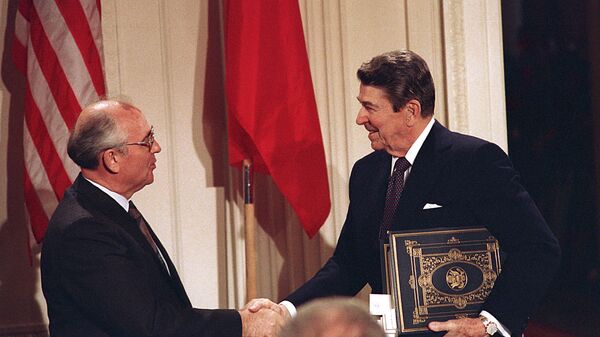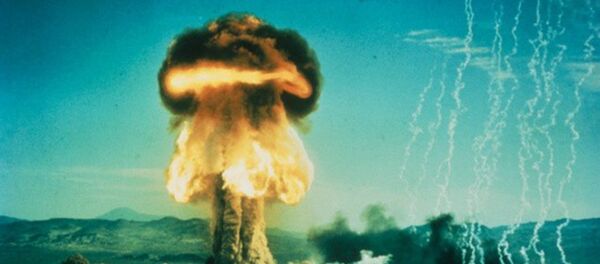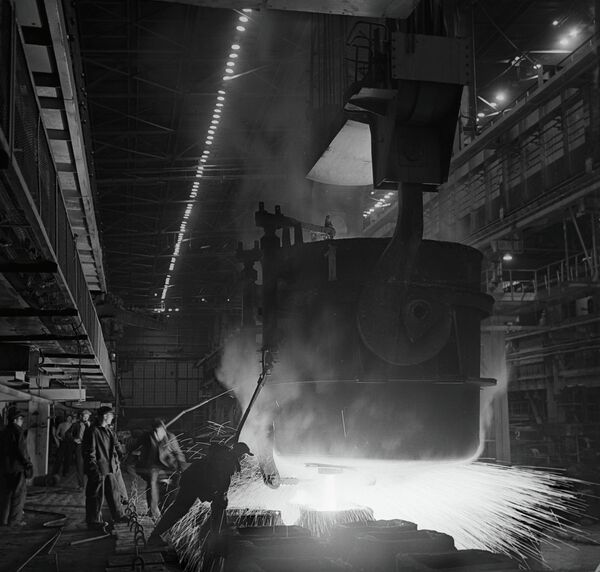US political scientist and geo-strategist Zbigniew Brzezinski noted in 1990, a year before the fall of the USSR: "In my view, this deepening crisis [in the USSR] is not a transitional crisis; it is a historic crisis… The crisis of the Soviet Union is a historic crisis like the crisis of the Ottoman Empire, for example. It is a crisis of stagnation, of attrition, of demoralization, of fragmentation, and of intensified potential for violence."
So, was the old hawk right and the Soviet Union was destined to lose? Was the Soviet system crumbling and falling apart at the seams?
Interestingly enough, some archival documents released by Rockefeller's Trilateral Commission in a commemorative brochure dedicated to the 25th anniversary of 1989, "the year that changed the map of Europe," draw a slightly different picture.
Mikhail Gorbachev and the Trilateral Commission
In January 1989, the Commission's task force authors on East-West relations — Valery Giscard d'Estaing, Henry Kissinger and Yasuhiro Nakasone — undertook a mission to Moscow in order to meet Soviet leaders, notably Mikhail Gorbachev.
The group and Gorbachev were discussing the issue of coexistence as well as a roadmap of the USSR's integration into the world economy. Due to the 1986 conspiracy between Saudi Arabia and the US, the Soviet economy faced a temporary recession caused by sharp fall in oil prices.
However, the USSR was not in a "dire state." The transcript of Gorbachev's meeting with the Commission group on January 18, 1989 indicates that the Soviet leader had no doubts the USSR and the West were "on par" in that period of time.
"The questions you have raised deal with how the USSR is going to change. But it is also important to know how you are going to change in your attitude toward the USSR. We are all at a crucial stage — both capitalism and socialism," Gorbachev emphasized, stressing that neither side should ask the other to abandon their social philosophies.
"The two systems should show they can adapt to new conditions," he added.
Was it a bluff? Why did Gorbachev hint that both systems were facing similar problems?
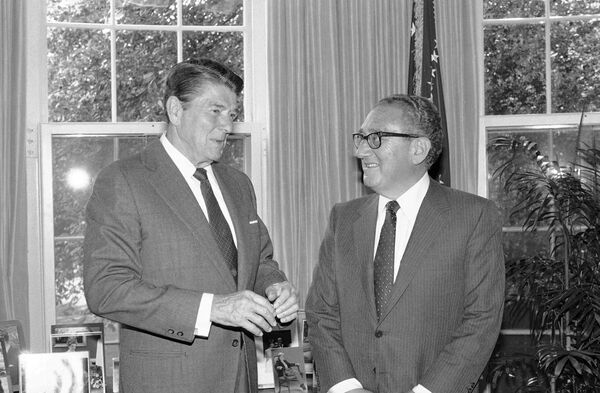
"Black Monday": US Stock Market Crash of 1987
Indeed, it was not solely the USSR who faced a recession — in the late 1980s a ghost of depression was haunting the United States. Two years earlier, on October 19, 1987, the United States experienced a severe stock market crash which prompted deep concerns regarding the efficiency of the country's monetary system.
Experts gloomily predicted that it would take "a miracle" to save the American economy. Curiously enough, the collapse of the USSR had become the "miracle" that postponed the US and global financial crises for decades and in the 1990s the US enjoyed unprecedented economic growth.
Back in January 1989, Gorbachev offered the West closer economic cooperation that could purportedly bring both parties back from the brink of economic disaster. The USSR boasted substantial achievements in industrial machinery, steel, mining and petroleum production, aircraft, military and space industry; it was developing sophisticated technologies, including microbiology and electronics.
The Soviet leader urged the West to lift sanctions imposed on the USSR. "This would not be a favor to the USSR. The West would also benefit from the trade," he told the Trilateral Commission during the historical 1989 summit.
The USSR Posed Substantial Economic Threat to West — Thatcher
According to Director of the Center for Russian Studies at the Moscow University for Humanities and the Institute of System Strategic Analysis, historian and publicist Andrei Fursov, the West was unwilling to collaborate with the USSR "on par." It needed a "raw-material appendage," rather than a serious competitor, the historian elaborates.
Citing former British Prime Minister Margaret Thatcher's speech delivered at the American Petroleum Institute in Houston, Texas in November 1991, Fursov points out that the West considered the USSR a "serious threat" to the Western world.
Surprisingly, the ex-prime minister referred to the "economic threat," adding that the West was never afraid of the Soviet Union's military "offensive." With the planned economy and the particular combination of moral and material incentives, the Soviet Union managed to achieve high economic indicators, Thatcher warned. Combined with the enormous natural resources of the USSR, the sound management could deal a heavy blow to the West's positions in the global market, she noted.
But was not the centrally planned economy "the root of all evil" that dragged the USSR into a vicious circle of the recession of the 1980s?
Soviet Planned Economy — a Yacht That Could Not Catch the Wind
Indeed, prominent American economist and Nobel Prize Laureate in Economics Wassily Leontief (1906-1999) compared the USSR's economy to a yacht that was unable to catch the wind. The Soviet economy was doomed to further recession, restrained by excessive government interference and regulation, he noted.
At the same time Leontief praised the Soviet planned economy for an unprecedented industrial leap in the 1930s and added that it facilitated the country's rapid recovery after the Second World War. Furthermore, the centrally planned economy allowed the USSR in the 1970s and the early 1980s to gain economic growth rates comparable to those of the US and even exceeding those of Western Europe.
Curiously enough, the economist also criticized the American financial system, freed from government control, comparing the United States to the yacht sailing without a map and a compass. Both systems desperately needed reforms, Leontief believed.
But does it mean the USSR had to be dismantled? Was it really necessary to destroy the system and build a new one from scratch?
Fursov narrated that in the late 1980s Leontief was invited by the Soviet government to carry out a thorough analysis of the USSR's economic system. The Nobel Laureate's verdict was that the structural changes were needed to bolster economic growth but the Soviet system in general was viable and could be "mended." The USSR did not face a systemic crisis.
But what happened next and what were the results of "Perestroika," Gorbachev's initiative aimed at rebuilding the Soviet system?
The USSR's Transitional Reforms Were Hijacked by West
Paradoxically, in January 1989, Gorbachev discussed the possibility of USSR-Western joint ventures and mutually beneficial collaboration in the global market and two years later the Soviet Union was brought to its knees and collapsed.
Andrei Fursov believes that there was a conspiracy between Communist high-ranking "apparatchiks" and the Western political and financial elite. A part of the Communist senior officials sought to join the Western global capitalist establishment.
Although they did not actually want to tear the USSR to pieces, the country's transitional reforms were hijacked by the more experienced, smarter and more hawkish Western elite, the historian deems. As a result the country was split and lured into the abyss of political and economic catastrophe.
Remarkably, in 1992 economist Wassily Leontief slammed Gorbachev and Yeltsin's leadership for ruining the country's economic, political and social order. He emphasized that the Kremlin had to conduct the transition from a "centrally planned" to a "market" economy incrementally and under government supervision. The country's economic system was literally burned to ashes, now the market system had to be built from scratch.
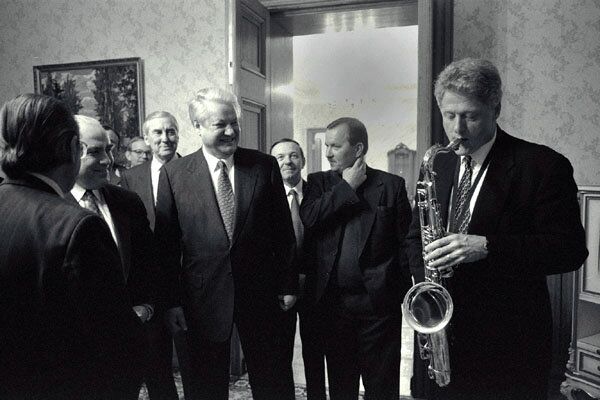
Due to the "efforts" of Russia's liberal "reformers" and their Western economic consultants, the country's production volume was hacked in half and this vacuum was immediately flooded by Western goods, Russian Presidential advisor Academician Sergei Glazyev wrote in his 2003 essay "How to Win a Battle with Poverty in a Rich Country."
"The neoliberal revolution after 1991 was indeed intended to dismantle post-Soviet industry, to pull it up by its roots. H.I.I.D. [Harvard Institute for International Development] and A.I.D. [US Agency for International Development] operatives bought out Russian companies playing a key potential military role and dismantled them," Michael Hudson, a research professor of economics at the University of Missouri, said in an interview with The Saker in June 2015, and added: "For the ruble to rise in value, Russia would need to re-industrialize [now]."
By the early 2000s Russia had become the West's "raw-material appendage" and a promising market, contributing a lot to the West's economic rise in the 1990s, according to Andrei Fursov.
So, could efficient management have brought the country back from the brink of catastrophe thus saving the USSR from dissolution? According to Russian historians, this question is a rhetorical one. But, undoubtedly, the history of the fall of the Soviet Union is an important lesson the global powers should learn.
